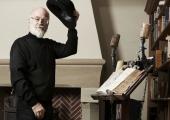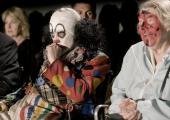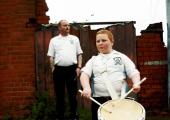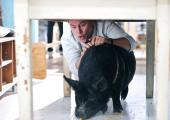Secrets of the Pop Song, BBC Two

How to write a ballad, with Rufus Wainwright and Guy Chambers
This hugely entertaining first instalment of a three-part investigation into what makes pop songs tick took as its theme "The Ballad", perhaps the most bomb-proof of pop's traditional forms. Mind you, the programme's definition of a ballad was pretty loose. For instance, I would say Sting's "Every Breath You Take" is merely medium-paced rather than a ballad. I'd just file Culture Club's "Do You Really Want to Hurt Me" under "Pop Song".









